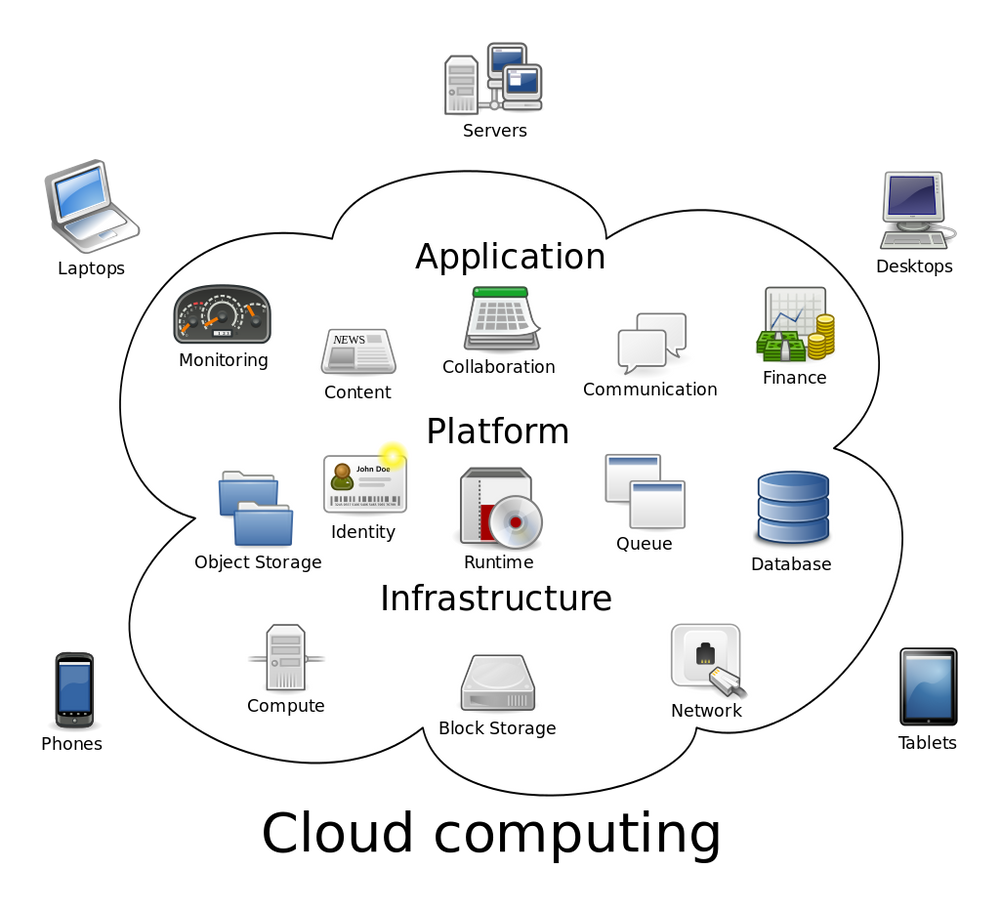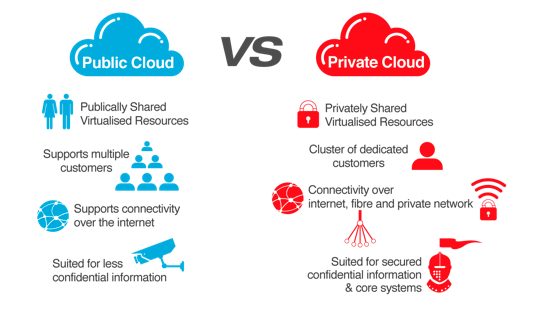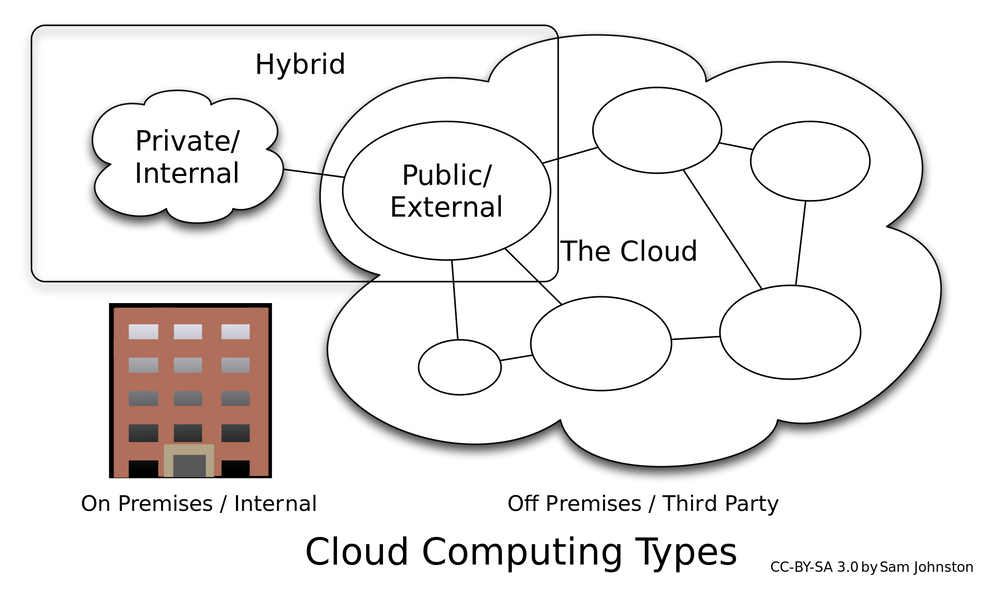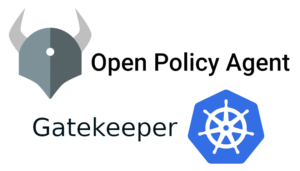What is cloud computing, Nowadays we hear this word everywhere and it is not a small thing to explain but I try my best to make you understand? I started to hear this from back in 2015. And my first cloud experience was on AWS. When my manager was explaining and “he said all our production servers are in the cloud”, That moment I was so confused. And somehow I managed to escape that session . Then I started to ask the same question “what is the cloud” to one of my best friends (GOOGLE).
This article helps you to understand.
- What is Cloud Computing?
- Why do we need Cloud Computing?
- Types of Cloud Computing.

What is Cloud Computing
Cloud computing is a service offered all computing services like Servers, Storage, Network, Analytics, AI, software, and whatnot through the internet(web-based). All we have to do is pay for what we used. It is very efficient and highly scalable. In simple words, someone else maintains all your infrastructure for you with high security and under SLA(Service agreement license). You can access your resources from anywhere in the world with a working Internet.
Why do you need Cloud Computing
Imagine if you have your own datacenter, you need a few brilliant minds to maintain and provide security, scalability, and always make sure the servers are up and running. The cloud providers doing the same thing for you with less cost and high security. So now you can use the brilliant minds to do some miracles for your organization.
We have so many reasons to adopt the cloud in our daily operations. Let’s take a few top contributors
- Cost
- Speed
- Global Scale
- Performance
- Security
- Productivity
Cost: With the cloud, you no need to invest anything for your infrastructures like buying hardware, network, storage, and etc. all you need one account with one of your favorite cloud providers(Azure, AWS, GCP, Oracle…) then you are ready to spin up your application.because cloud provider will give you everything which needs for an application lifecycle.
Speed: In the cloud, you can deploy any number of resources in minutes. No need to rush on capacity planning. even it is high speed with automated scripts which helps a lot in production environments where we have hundreds of servers.
Global Scale: With the help of a cloud you can scale (deploy) your application in different geographic locations. you no need to worry about your high scalability or disaster recovery.
Performance: The cloud provider data centers run across the globe and they always update their infrastructure from Hardware to the software(end to end) which helps to provide high performance and security also. Your application and data always deployed in a high availability environment so there are very fewer chances of downtime which helps to maintain your application quality of service.
Security: One of the most important things in the modern world. In the cloud, we can apply multi-level security policies to our resources to restrict access which helps a lot in terms of security. And on top of it, each cloud provider spends billions to improve their security all the time which is very hard in our own datacenters.
Productivity: If we have our own datacenter, Then we are responsible for everything like patching, security, maintenance, and a few other ops related engagements. since we took advantage of the cloud we can only concentrate on our business improvements and we use all the manpower to innovate something new which helps our business grow.
Types of cloud computing
Now you what is cloud and its importance. let’s talk about the different types of cloud computing. what do you mean by that, Well each organization has different audits and different compliance? so to satisfy every organization we have different types of clouds.
- Public Cloud
- Private Cloud
- Hybrid Cloud

Public Cloud: Let me put it in a simple language. Where the client shared the resources along with everyone else called public. The example, you created a new VM and you are accessing that from your home network(an internet). Means your VM hosted on a physical server and on the same physical server maybe someone else’s VM also running. And when you try to access the data through the internet your data passing through a public network(ya I heard you. no problem we have protocols to isolate and protect the data while traveling through the wires ). Now the internet meaning, the cloud which is available to may organizations called public cloud. I hope now this sentence makes sense right!
Private Cloud: By this time you already guessed it. yes, this is a complete opposite to the public cloud. the infrastructure is completely dedicated to your organization no one else has access to use. Dedicate network connection dedicated to physical hardware to deploy the VMs and etc. maybe this can be your on-premises datacenter or private datacenter in the cloud(third party), they maintain everything for you.

Hybrid Cloud: It is kind of tricky to understand but the simple meaning is the combination of both public and private clouds. Few resources are in the public and few are in the private cloud. so we can take advantage of public cloud services like analytics and at the same time, we have data compliance since it will be in the private cloud.



